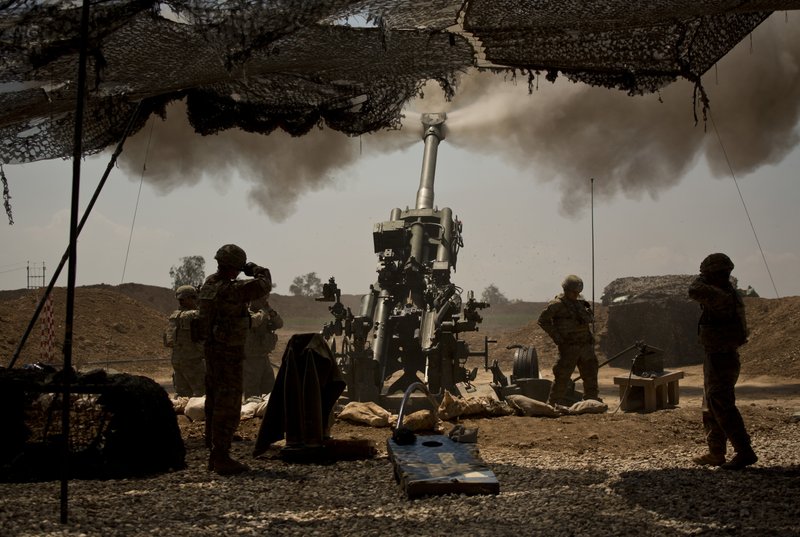BAGHDAD -- Prime Minister Haider al-Abadi is in talks with President Donald Trump's administration to keep American troops in Iraq after the fight against the Islamic State extremist group in the country is concluded, according to a U.S. official and an official from the Iraqi government.
Both officials underlined that the discussions are ongoing and that nothing is finalized. But the talks point to a consensus by both governments that, in contrast to the U.S. withdrawal in 2011, a longer-term presence of American troops in Iraq is needed to ensure that an insurgency does not bubble up again once the militants are driven out.
"There is a general understanding on both sides that it would be in the long-term interests of each to have that continued presence. So as for agreement, yes, we both understand it would be mutually beneficial. That we agree on," the U.S. official said.
Both officials spoke on condition of anonymity in line with regulations.
The talks involve U.S. Defense Secretary James Mattis and Iraqi officials over "what the long-term U.S. presence would look like," the American official said, adding that discussions were in early stages and "nothing has been finalized."
U.S. forces in Iraq would be stationed inside existing Iraqi bases in at least five locations in the Mosul area and along Iraq's border with Syria, the Iraqi government official said. They would continue to be designated as advisers to dodge the need for parliamentary approval for their presence, he said.
He said al-Abadi is looking to install a "modest" Iraqi military presence in Mosul along with a small number of U.S. forces after the fight against the Islamic State, also known as ISIS, is concluded. The forces would help control security in the city and oversee the transition to a political administration of Mosul, he said.
The U.S. official emphasized that there were no discussions of creating independent American bases in Iraq, as such a move would require thousands more personnel. He said the troops levels would be "several thousand ... similar to what we have now, maybe a little more."
Currently, the Pentagon has close to 7,000 U.S. troops in Iraq, many not publicly acknowledged because they are on temporary duty or under specific personnel rules. The forces include troops training Iraqi forces, coordinating airstrikes and ground operations, and special forces operating on the front lines.
The news comes as Iraqi forces are struggling to push Islamic State fighters out of a cluster of neighborhoods in western Mosul that mark the last patch of significant urban terrain the group holds in Iraq, nearly three years after the militants overran nearly a third of the country.
At the height of the surge of U.S. forces in 2007 to end sectarian violence that nearly tore Iraq apart, there were about 170,000 American troops in the country. The numbers were wound down eventually to 40,000 before the complete withdrawal in 2011.
The U.S. intervention against the Islamic State, begun in 2014, was originally cast as an operation that would largely be fought from the skies with a minimal footprint on Iraqi soil. Nevertheless, that footprint has since grown given Iraqi forces' need for support.
Information for this article was contributed by Lolita C. Baldor of The Associated Press.
A Section on 05/05/2017


